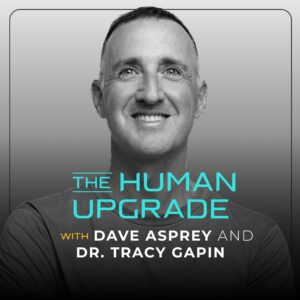
Happy Men’s Health Month! June is our favorite month because it’s a period dedicated to education and awareness about men’s wellness. This is a great opportunity for the media, healthcare providers, and public policy creators to bring men’s sexual health to the forefront of the healthcare conversation.
Did you know that the life expectancy for males is 76.1 years, while the life expectancy for females is 81.2 years?
Although it’s possible that there are genetic factors, most experts believe that behavior plays a larger role in the shortened life expectancy of the American male.
This June, it’s time to commit to your health. With awareness and understanding of common men’s health concerns, you can reduce your risk of serious health concerns.
What are common male health concerns?
Not every man will have the same lifestyle, behaviors, and health risks. However, there are a number of diseases that affect a large percentage of men, especially with age.
Below are the most common male health concerns and their typical causes or risk factors.
Heart disease

The most prominent male health threat is heart disease. Heart disease is the leading cause of death for men in the U.S., accounting for nearly 1 in 4 male deaths. It’s much more common in men than women, with over 3/4 of sudden cardiac events occurring in men.
One of the most frightening statistics about heart disease is that half of the men who die suddenly from heart disease have no previous symptoms.
Though not showing symptoms, research has proven that heart disease can be preventable. The key factors for high risk of heart disease are all controllable:
- Diabetes
- Overweight
- Poor diet
- Physical inactivity
- Excessive alcohol use
Other significant risk factors for heart disease include high blood pressure, high LDL cholesterol, and smoking. Unfortunately, though, half of American men have at least one of these three risk factors—even though these are entirely dependent upon lifestyle choices.
Heart disease isn’t something to mess with. At the very least, it can cause erectile dysfunction and reduced quality of life. At the worst, it can be fatal. 
Prostate cancer
Prostate cancer is the most common cancer among men (except for skin cancer). It is often treatable, but it’s the second leading cause of cancer death behind lung cancer. In America, 1 in 9 men will be diagnosed with prostate cancer during his lifetime, and 1 in 41 will die of it.
Prostate cancer is rare before age 40 and becomes much more frequent after age 65. Nearly 6 of 10 diagnosed cases occur in men over the age of 65, and the average age of diagnosis is 66.
Early detection is key to treating prostate cancer. It is completely curable if caught early enough. In fact, with early detection, the 5-year relative survival rate of prostate cancer is 99%, the 10-year survival rate is 98%, and the 15-year survival rate is 96%. Thus, it’s recommended that prostate cancer screening start at age 50 and occur at least every five years. For some men, doctors may recommend yearly screenings.
Risks for prostate cancer include age, family history, race, nationality, sedentary lifestyle, diet, calcium, obesity, beer, smoking, height, and Agent Orange.
Learn more about prostate cancer here.
Erectile dysfunction
Erectile dysfunction (ED) is a common concern for men, affecting about 40% of men in their 40s, 50% of men in their 50s, 60% of men in their 60s, and 70% of men in their 70s. ED also called impotence, is when a man cannot get or sustain an erection long enough to have satisfying sexual intercourse. It becomes a long-term concern that can impact sexual health, relationships, and even mental health.
Although it’s more common for men of older age, studies suggest that 1 in 4 men seeking treatment for ED are under the age of 40. Those under age 40 also often have more severe symptoms of erectile dysfunction.
Erectile dysfunction is often not a disease in and of itself. It is usually a symptom or side effect of another serious health concern like heart disease, high blood pressure, diabetes, or obesity. ED is often one of the first warning signs that something serious is going on in the body.
Thus, if you’ve been experiencing ongoing erectile dysfunction, you want to talk to your doctor as soon as possible. Your doctor will usually consider ED as a symptom, so they will screen you for other potential concerns as well.
There are a number of potential causes of erectile dysfunction including:
- Stress
- Anxiety and depression
- Performance anxiety
- Smoking
- Drug or alcohol abuse
- Heart disease
- Kidney disease
- Diabetes
- Obesity
- High cholesterol
- High blood pressure (hypertension)
- Neurological diseases
- Hormonal disorders
- BPH
- Low testosterone
- Peyronie’s disease
- Prostate cancer treatment
- Porn addiction
ED can also be a side effect of certain medications you’re taking—including the medications that could be causing your ED in the first place. Work with your doctor to understand where your ED is coming from and what you can do about it.
Check out more erectile dysfunction resources here!
Low testosterone
Testosterone is the “man” hormone. It’s the most important hormone in maintaining male health including muscle mass, hair growth, bone density, red blood cell development, and sex drive. It also plays a role in cognitive function, mood stability, exercise endurance, and energy.
Testosterone levels naturally decline with age. But this decline can create serious health problems for men. Low testosterone can cause:
- Lower libido
- Fatigue
- Erectile dysfunction
- Weight gain and obesity
- Reduced muscle mass
- Mood changes
- Reduced cognitive function
- Poor memory
- Arthritis
- Increased risk of heart disease
Men with low testosterone often present a general feeling of “un-wellness.” If you’ve been feeling “off” recently, you may be dealing with low testosterone.
There are natural ways to boost testosterone, and there is the possibility of replacement therapies if lifestyle changes aren’t showing fast results. You can quickly overcome low testosterone if you commit to your health and wellness!
Stroke 
A stroke is caused by a clot or ruptured blood vessel that cuts off blood flow to the brain. This can cause lasting brain damage that can have serious and fatal implications.
Stroke is the fifth leading cause of death in the U.S., numbering about 800,000 deaths yearly with an additional 130,000 from stroke-related complications. Men are at a higher risk of stroke than women.
There is an increased risk of stroke in those who smoke, have high blood pressure, have diabetes, abuse drugs or alcohol, are overweight or obese, or live a sedentary lifestyle. Don’t put yourself at unnecessary risk for something that could permanently damage your brain.
Diabetes
Diabetes is when your body doesn’t produce enough insulin (type 1) and/or can’t use its insulin properly (type 2). This causes sugar levels to rise, which can create serious health concerns. It increases the risk of heart disease and impacts eyes, kidneys, and nervous system. It’s also directly linked to increased prevalence of erectile dysfunction.
The risks for type 2 diabetes and complications from diabetes include smoking, being overweight, sedentary lifestyle, high blood pressure, and high cholesterol. It’s also more common in men over age 40.
See if you may be at risk for type 2 diabetes with this 60-second online test.
BPH
After age 40, the prostate can start to grow. This is called benign prostate enlargement, and it’s “mostly” benign. Although it isn’t dangerous, it can create a number of sexual health concerns for men. It mostly impacts the urinary tract, creating a number of “bathroom” problems like a sudden urge to go to the bathroom or a slow urine stream.
BPH has also been linked to erectile dysfunction and other metabolic diseases. This is because the prostate typically grows when there’s a change in the prostate cells. This can be due to infection, prostate cancer, prostate cancer treatment, age, or other factors.
Although BPH is itself not harmful, it’s often the first sign of another underlying factor. Enlargement is a signal that something in your body is changing your prostate cell makeup—and it’s not a sign to be ignored.
Suicide
Mental health is equally—if not more—important than physical health. Suicide is the 10th leading cause of death in America, and almost 45,000 people die by suicide yearly. Men die by suicide 3.53x more than women, and the rate is higher in middle age.
Too many men feel like they’re drowning with no route for escape. Men’s health month is the perfect time to open up the conversation about men’s mental health.
If you are struggling or feeling lost, it’s important that you realize you’re not alone—and you won’t feel this way forever. Find a local professional or support system to take the first steps towards regaining your life.
Metabolic syndrome
Metabolic syndrome is the term used to describe a collection of conditions that increase the risk for diseases, like cardiovascular disease and diabetes. Conditions of metabolic syndrome include:
- Insulin resistance (pre-diabetes)
- Hypertension (high blood pressure)
- High cholesterol
- High blood sugar
- Obesity
Metabolic syndrome is a direct cause of lifestyle choices like diet and exercise.
Did you know…
Chronic inflammation may be the link between all of the above diseases including heart disease, cancer, stroke, depression, and Alzheimer’s. Preventing chronic inflammation may help minimize the risk of disease. Learn more about chronic inflammation here.
How can you protect your health?

I didn’t present you with all the major male health problems to scare you. I’m not here to spook you. Rather, I’m here to remind you of your own mortality—as well as your CONTROL over your mortality.
All of these diseases are preventable with the right lifestyle changes and behaviors. So what can you do to make sure you’re maintaining your health and wellness this June—and the rest of the year?
Get yearly screenings.
When was the last time you went for an annual checkup? If it was more than a year ago, it’s time to go get screened.
Yearly screenings are the top prevention method for all of the above diseases. It allows you to “catch” diseases or conditions early, so they can be treated and monitored.
You should get an annual liver, kidney, sugar, and cholesterol screenings at the very minimum. Also, talk to your doctor about a PSA test as a preliminary prostate cancer checkup.
Kill the monster while it’s a baby before it turns into an unstoppable force. If you catch diseases when they’re early on, they’re more treatable.
Eat a healthy diet.
Diet is one of the key lifestyle factors to overall health and wellness. Diet impacts your genetic expression and epigenetics, meaning it plays a role in just about every disease.
Studies show that you can prevent prostate cancer with a healthy diet, 
Learn more about eating a healthy diet with the following resources:
- 3 Prostate Healthy Foods For Men
- 5 Foods To Avoid For A Healthy Prostate
- Why You Should Never Eat A High-Protein Diet If You Want To Build Muscle
- Transform Your Body In 24 Hours With Intermittent Fasting
- What Should You Be Eating For Your Body Type?
- 7 Foods Causing Your Erectile Dysfunction
- 13 Natural, Edible Vasodilators To Treat Your ED
- 13 Estrogenic Foods & Products To Avoid For Your Health
Exercise.
Exercise is one of the simplest ways to fix nearly all of your health problems. Working out 4-5 hours per week can:
- Help lose fat and maintain a healthy weight
- Improve metabolism
- De-methylate genes
- Improve sleep
- Minimize stress
- Elevate mood and happiness
- Regulate blood pressure
- Reduce bad cholesterol
- Get rid of inflammation
Exercise is one of the easiest ways to control your health—without even thinking about it. Whether you swim, walk, lift weights, or play Frisbee, your body needs movement to be healthy and strong. I especially recommend a low-pressure exercise that won’t damage your joints, like yoga, stretching, and swimming.
Learn more about the importance of working out here.

Know your supplements.
Most American men don’t get the micronutrients they need to maintain their health and vitality. Thus, I recommend most men take the following supplements to boost their wellness:
- Probiotics
- Holy basil (tulsi)
- Vitamin D
- Vitamin C
- CoQ10
- Fish oil
- Multivitamin
- Vasodilators
But make sure you know what’s in your supplements. A lot of one-a-day vitamins actually contain inactive ingredients that can do more harm than good. Always take a look at the ingredients label.
You should also talk to your doctor about the medications you’re on. If you’re experiencing any side effects, don’t be afraid to open the floor for conversation.
Stress less.
Stress is the number one killer of men today. It’s an epidemic that seems to only be getting worse in America. In fact, more and more research is proving that stress is at the root of a number of serious, fatal diseases. Stress even influences your genes and epigenetic expression, “turning off” the protective genes and “turning on” those that cause serious disease.
Make sure you’re taking time for yourself. Whether that means spending time with family, taking up yoga, or finding a less stressful career path, it’s critical that you put your health first. Learn more about how to address stress here.
Sleep more.
Sleeping 7 to 8 hours every night has proven health benefits. Sleep is when your body’s hormones reset, which helps lower cortisol (stress) and boost testosterone. Without this period of rest, your body starts to go into “overdrive” and its normal functioning starts to slow down. Sleep (and a lack of sleep) can even impact your genes.
Learn how to sleep better right now.
Use sunscreen.
Put on your SPF. Skin cancer is the most common cancer, and it’s frequently caused by exposure to UV rays. Daily sunscreen can help prevent the free radical damage that causes both cancer and wrinkles.
Sunscreen should become a daily habit to show the full effect. Check out these other five habits that will boost your health overnight!
Drink water.
Health and wellness all come down to water. Water makes up the majority of your body. Without it, your body can’t function properly. That’s why just a couple of days of dehydration can kill you.
Drink more water and you’ll find improvements in energy, weight, sleep, mood, diet, exercise, sex, and more. Water is the building block of life—so make sure you’re getting enough.
Pro-tip: Drink pH balanced water. This helps keep your body’s pH aligned, which helps keep your body in balance to fight disease and infection.
Celebrate Men's Health
How are you going to celebrate men’s health month? By FINALLY going in for that yearly screening? Or using these summer months to get outside and exercise?
How about changing your diet? Or by signing up for a G1 Performance Health consultation?
The Peak Launch Discovery Consult is a private consultation that takes you through every aspect of your health. We discuss everything about diet, exercise, psychology, and sexual health to reinvigorate your health and wellness. With high performance wellness & anti-aging medicine, Dr. Gapin provides Fortune 500 executives and entrepreneurs a personalized path to lose weight, maximize energy, & restore vitality.
And yes, I prescribe having more sex…








